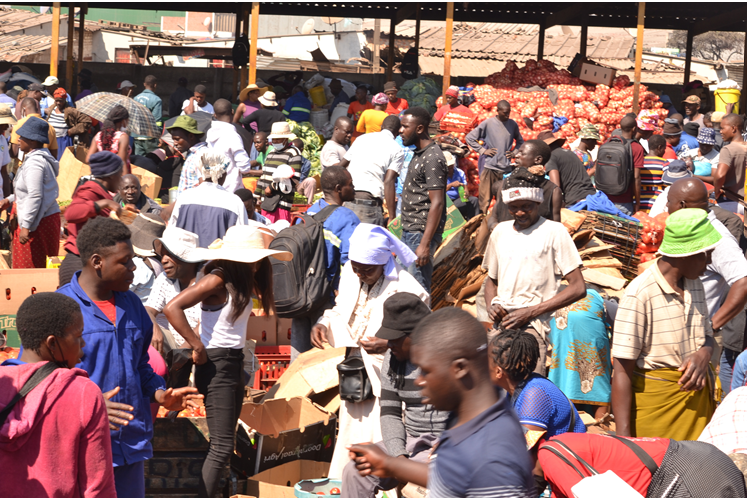Decades after independence from colonial masters, most African countries continue to perpetuate colonial urban planning approaches that were designed to exclude and marginalize the majority of poor Africans and their markets from urban areas. For instance, why should it be acceptable for urban dwellers to keep cats, dogs and horses but not acceptable for some to keep indigenous chickens, goats, sheep and cattle? In most African cities, people who keep goats, sheep and cattle irrespective of occupying big yards are often considered to be contravening urban by-laws.

More importantly, urban industrial and residential planners only think about providing space for shopping malls and supermarkets not indigenous markets from which the majority get their food and other requirements. Although it is clear that the informal sector and indigenous markets are now major sources of livelihood for the majority as formal industries have failed to solve unemployment challenges in Africa, there is still no meaningful support, recognition and protection of the informal sector and indigenous markets. The role of mass markets in sustaining strong relationships between rural and urban areas is also not respected by urban planners.
Value of inserting African values into urban planning and renewal
As many African countries struggle with urban renewal, African values like Ubuntu that are expressed through indigenous markets can provide some of the solutions. This can happen through the voices of market traders who have decades of experience in sustaining an African process of urban formation based on Afro-centric business philosophy. Founded on the bedrock of African logic, norms and values, indigenous markets like Mbare in Harare, Zimbabwe demonstrate a creative alternative to the dominant capitalist model which is exclusively for the elite.
Although municipalities have kept indigenous markets in a dilapidated state, they remain a source of wealth, knowledge and avenues for poor people to claim citizenship in urban areas. They influence the flow of goods and services, shape human interaction in the city, and determine patterns of accumulation in the built environment. They are also important in maintaining everyday life in villages, acting as centres of economic vibrancy and cultural diversity as well as developing specialised niche products linked to certain villages.
The way indigenous markets influence the organization of African economies should be embedded in urban planning and renewal rather than continue to isolate and marginalize market traders. African urban planners should move away from approaches used by colonial administrators who never intended Africans to be real players in global cities. African cities should be designed and planned in ways that enable the majority of citizens to own the means of production and exchange rather than just working in mines, plantations and shopping malls.
During colonial times, Africans were seen as itinerant residents who would eventually return to their ancestral homes in the rural areas. To a limited extent, Africans who adopted aspects of Western culture and religion after undergoing colonial and missionary education were made more welcome in the urban settlements. Traders and artisans, who tended to have limited access to formal education, faced several obstacles in their bid to gain entry into the city. Through grit, solidarity and entrepreneurship, traders in African indigenous markets have been quietly fronting the decolonization of urban planning. Their resilience has been a major factor in the survival of the markets and the concentration of labour in cities in ways that have contributed substantially to the evolution of many African cities.
The persistence of indigenous African markets into the 21st century in the context of neglectful policy environment implies the same recognition given to multinationals and large domestic firms should be accorded traders and mass markets through favourable policies. Traders and smallholder farmers who trade their commodities through indigenous markets should be supported and recognized for indigenizing African economies through embedding African logic, norms and values that anchor resilience. In addition to promoting Afrocentric business ethics, African markets continue to give African cities an indigenous identity which is attractive to tourists and the young generation.
Charles@knowledgetransafrica.com / charles@emkambo.co.zw /
Website: www.emkambo.co.zw / www.knowledgetransafrica.com
Mobile: 0772 137 717/ 0774 430 309/0712737430
